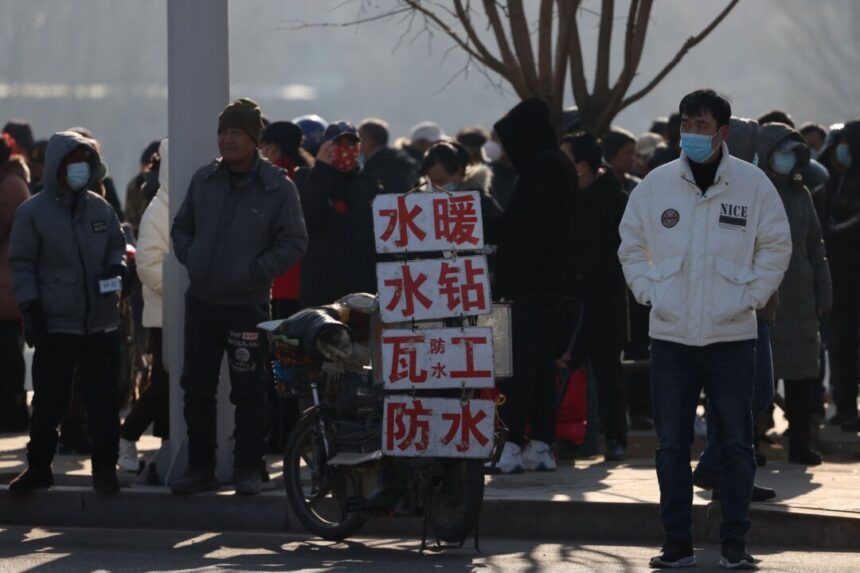China is still grappling with economic challenges, as Beijing’s responses to setbacks are inadequate, resulting in more negative news and ineffective policies. The ongoing pattern of economic troubles in China, starting from the Evergrande crisis in 2021, has persisted with each subsequent issue being met with insufficient or poorly planned solutions. This cycle has led to a lack of economic dynamism and growth prospects, leaving Chinese workers and businesses struggling to navigate the turmoil.
Recent reports from China indicate that despite the government’s efforts to introduce new policies and initiatives, the economy continues to underperform. Key economic indicators such as real GDP growth and unemployment rates do not reflect the desired progress. The People’s Bank of China has reported a significant decline in lending, signaling a lack of interest in spending by both households and businesses.
The housing sector, in particular, is facing significant challenges, with home sales and property prices continuing to decline. This has had a negative impact on consumer spending, as property values often make up a substantial portion of household wealth for many Chinese citizens. Efforts to boost consumer spending through incentives have had limited success, with retail sales figures falling short of expectations.
Businesses in China are also showing reluctance to increase capital spending, with private investment in expansion and modernization lagging behind public spending. The uncertain economic environment, coupled with concerns about government interference in business operations, has deterred private businesses from taking risks.
Additionally, exports from China have been sluggish, particularly in key markets like the West and Japan, where government policies and business strategies are shifting away from reliance on Chinese goods. Despite Beijing’s investment in high-tech sectors like electric vehicles and green energy, these efforts have not fully offset the challenges faced by the economy.
Overall, the persistent pattern of economic setbacks in China, coupled with inadequate policy responses, paints a bleak picture for the country’s economic future. The need for effective and sustainable solutions to revive economic growth and restore confidence in the market remains a pressing concern for Chinese authorities. The extensive efforts made have only led to an increase in surplus capacity in specific areas, ultimately distorting the Chinese economy by focusing on producing goods that neither China nor the global market desires. This situation, stemming from state-sponsored initiatives, is far from ideal and is likely to continue in the future. Please note that the opinions expressed in this article are solely those of the author and may not necessarily align with those of The Epoch Times.
Source link





